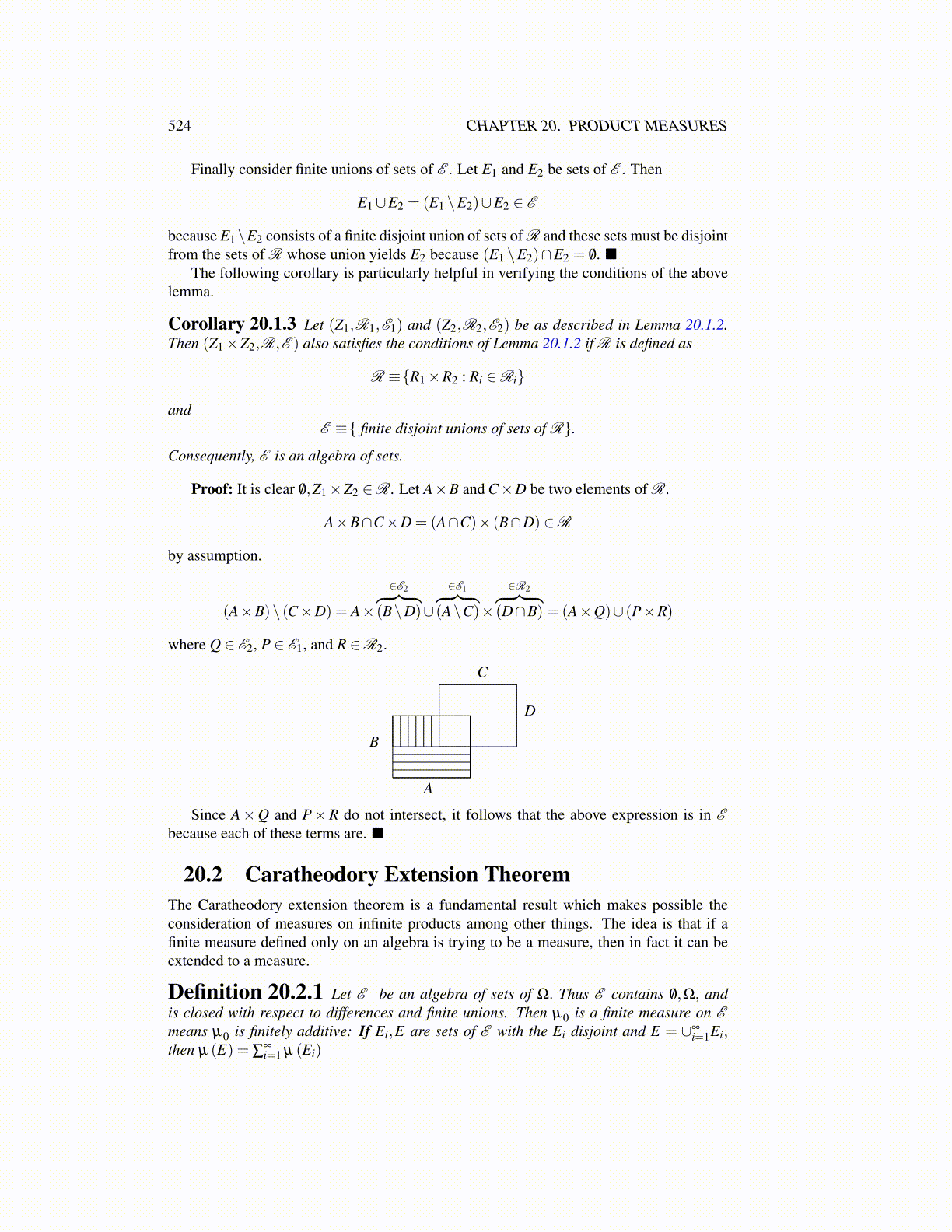
524 CHAPTER 20. PRODUCT MEASURES
Finally consider finite unions of sets of E . Let E1 and E2 be sets of E . Then
E1∪E2 = (E1 \E2)∪E2 ∈ E
because E1\E2 consists of a finite disjoint union of sets of R and these sets must be disjointfrom the sets of R whose union yields E2 because (E1 \E2)∩E2 = /0. ■
The following corollary is particularly helpful in verifying the conditions of the abovelemma.
Corollary 20.1.3 Let (Z1,R1,E1) and (Z2,R2,E2) be as described in Lemma 20.1.2.Then (Z1×Z2,R,E ) also satisfies the conditions of Lemma 20.1.2 if R is defined as
R ≡{R1×R2 : Ri ∈Ri}
andE ≡{ finite disjoint unions of sets of R}.
Consequently, E is an algebra of sets.
Proof: It is clear /0,Z1×Z2 ∈R. Let A×B and C×D be two elements of R.
A×B∩C×D = (A∩C)× (B∩D) ∈R
by assumption.
(A×B)\ (C×D) = A×
∈E2︷ ︸︸ ︷(B\D)∪
∈E1︷ ︸︸ ︷(A\C)×
∈R2︷ ︸︸ ︷(D∩B) = (A×Q)∪ (P×R)
where Q ∈ E2, P ∈ E1, and R ∈R2.
A
B
C
D
Since A×Q and P×R do not intersect, it follows that the above expression is in Ebecause each of these terms are. ■
20.2 Caratheodory Extension TheoremThe Caratheodory extension theorem is a fundamental result which makes possible theconsideration of measures on infinite products among other things. The idea is that if afinite measure defined only on an algebra is trying to be a measure, then in fact it can beextended to a measure.
Definition 20.2.1 Let E be an algebra of sets of Ω. Thus E contains /0,Ω, andis closed with respect to differences and finite unions. Then µ0 is a finite measure on Emeans µ0 is finitely additive: If Ei,E are sets of E with the Ei disjoint and E = ∪∞
i=1Ei,then µ (E) = ∑
∞i=1 µ (Ei)